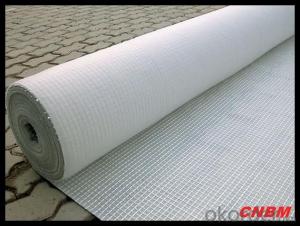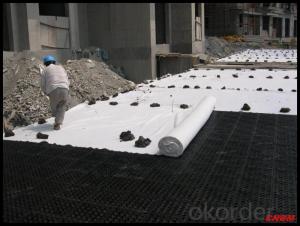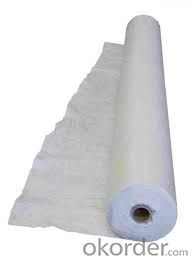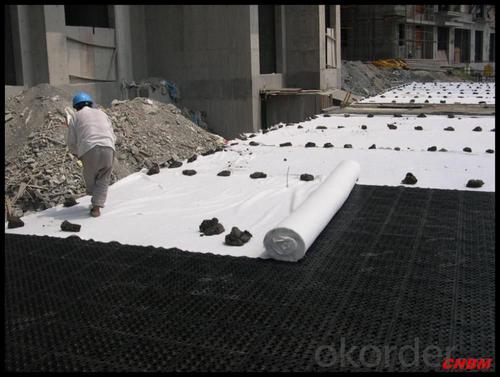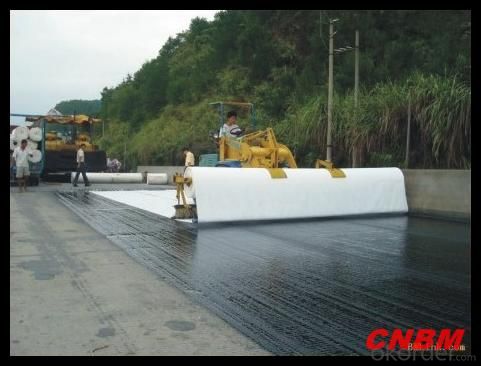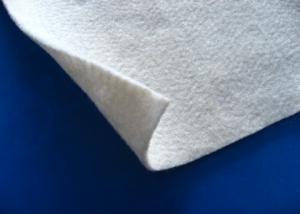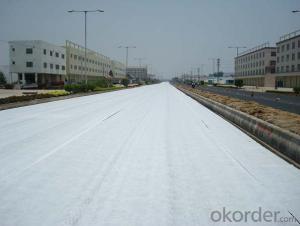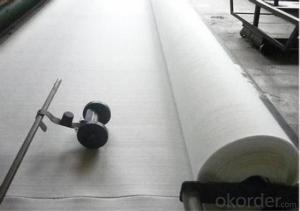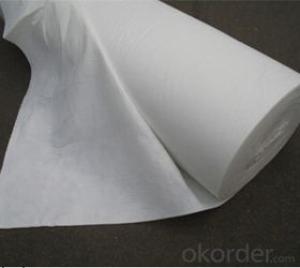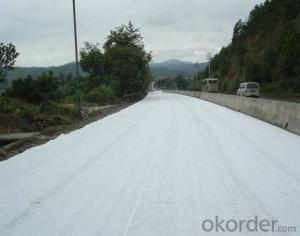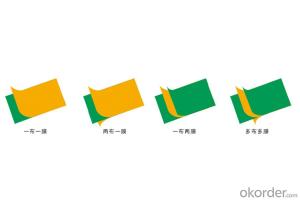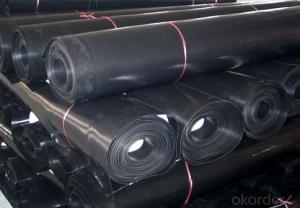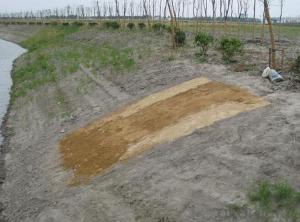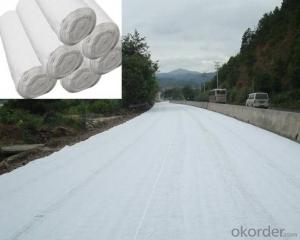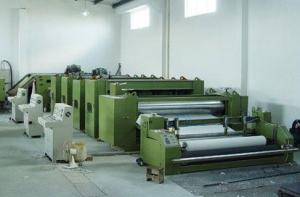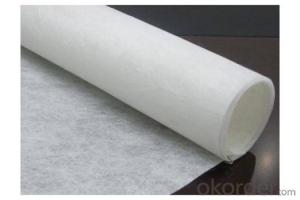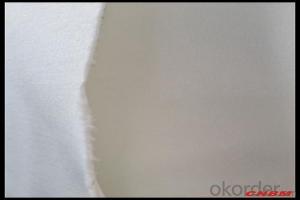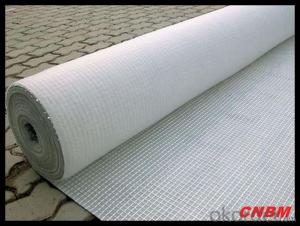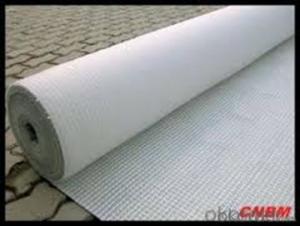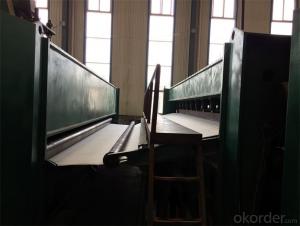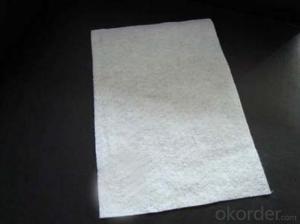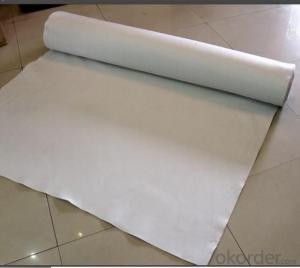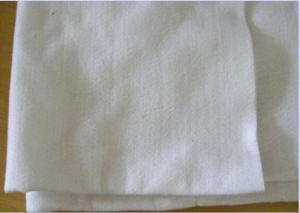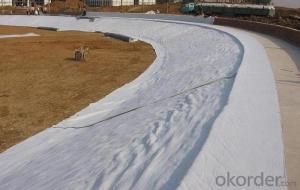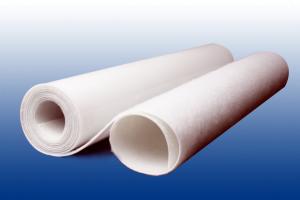Type 3 Non-Woven Geotextile Fabric 300gsm for Rawway
- Loading Port:
- China main port
- Payment Terms:
- TT OR LC
- Min Order Qty:
- 2000 m²
- Supply Capability:
- 1000000 m²/month
OKorder Service Pledge
OKorder Financial Service
You Might Also Like
Specification
Geo-textile is usually used for filtration, isolation, reinforcement or preservation, with the characteristics of high tensile
1. Hydraulic Engineering: Inverse filtering & protection in reservoir dam, earth rock cofferdam, tunnel, gutter way, etc; Protection for impervious layer in artificial lake, river-way, reservoir, etc;
2. Road Works: Drainage work in retaining wall, road side slope, roadbed, under-layer of railway & airfield runway
Density | Thickness | Breaking Strength | Elongation of Fracture | CBR Bursting Strength | Vertical Penetration Parameter | Equivalent Aperture |
g/m2 | mm | KN/m | % | KN | cm/s | O95mm |
65 | 1.2 | 2.8 | 40 ~ 80 | 0.7 | K x (10-1 ~ 10-3) (K = 1.0 ~ 9.9) | 0.07 ~ 0.2 |
75 | 1.4 | 3.3 | 0.8 | |||
100 | 1.6 | 5.0 | 0.95 | |||
150 | 1.52 | 7.5 | 1.5 | |||
160 | 2.0 | 8.5 | 1.60 | |||
200 | 2.4 | 11 | 2.10 | |||
250 | 2.8 | 14 | 2.60 | |||
300 | 3.4 | 16 | 3.20 | |||
400 | 4.0 | 21 | 4.0 | |||
500 | 4.5 | 25 | 4.8 |
to deformation
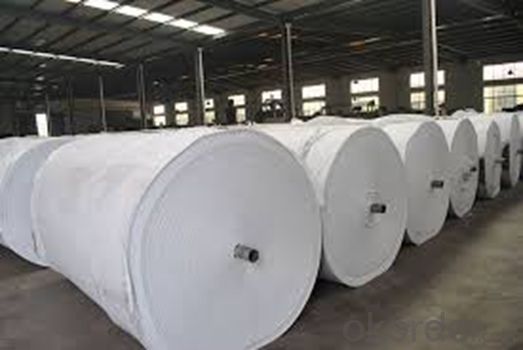
Quality assurance
1.On a regular basis or as per your request,we entrust national testing agencies to conduct quality inspections
2. Strictly in accordance with the ISO9001-2008 international quality system standard,we monitor and manage the whole process throughout production,quality testing,and measurement to ensure product quality
3. For quality-related construction delay or substandard construction(except for damage or losses due to customer’s responsibility or irresistible natural disasters),we have refunding,replacement,and repair services.We will respond to customers’ feedbacks on quality issues within 24 hours.
Packaging & Shipping
Packing: PLASTIC FILM INSIDE, AND WOVEN BAG OUTSIDE
Shipping: About 15 days after receipt the deposit
pecifications
geotextile fabric
permeability,filtration,easy for construction
ISO and CE certificate
Good quality and competitive price
Our Service
FAQ:
Q: What kind of payments does jenor support?
A: T/T, L/C, Cash are accepted.
Q: Do you charge for the samples?
A: Accordeing to our company policy, the samples are free, we only charge the freight fee. And we will return the freight fee during the next order.
Q: Can you produce according to customers' design?
A: Sure, we are professional manufacturer, OEM and ODM are both welcome.
Q: Do you have other products?
A: Yes, please check the pictures:
- Q: What are the different geotextile testing methods?
- There are several different geotextile testing methods, including but not limited to, grab tensile strength test, puncture test, tear strength test, bursting strength test, and water permeability test. These tests help determine the physical properties and performance characteristics of geotextiles for various applications in civil engineering and construction projects.
- Q: What are the geotextiles for concrete health
- Geotextile waterproof material, can be used for artificial lake bottom waterproof
- Q: What are the applications of geotextiles in coastal engineering?
- Geotextiles have several applications in coastal engineering, including shoreline protection, erosion control, and sediment filtration. They are used to stabilize and reinforce coastal structures such as revetments, breakwaters, and seawalls. Geotextiles also help in preventing soil erosion by acting as a barrier between the beach or dune and the water, reducing the impact of wave action. Additionally, they can be used to filter sediment and prevent the clogging of drainage systems in coastal areas. Overall, geotextiles play a crucial role in maintaining and safeguarding coastal environments.
- Q: Where is the geotextile in the municipal works?
- Conservation, consideration, there is more green and more Chinese geotextile material manufacturers
- Q: Can geotextiles be used in bridge abutment construction?
- Yes, geotextiles can be used in bridge abutment construction. Geotextiles are commonly used as a separation and filtration layer between the soil and the backfill material in bridge abutments. They help to prevent the mixing of different soil layers, improve soil stability, and provide drainage, which ultimately enhances the overall performance and longevity of the bridge abutment.
- Q: The outside of the blind tube is not to be with the geotextile 1 effect will be better?
- Plastic blind ditch is a new geosynthetics, is composed of plastic core wrapped outside the filter composition. At present the plastic core has several different cross-sectional shape rectangular, hollow rectangular, circular and hollow circular species structure of the plastic blind ditch products. Pass the water to see the original tie & gt; & gt;
- Q: How do geotextiles prevent soil erosion on slopes?
- Geotextiles prevent soil erosion on slopes by acting as a barrier between the soil and water. They allow water to pass through while trapping soil particles, which helps to stabilize the slope and prevent erosion. Additionally, geotextiles improve soil structure by providing reinforcement and reducing the impact of rainfall, thus minimizing the potential for erosion.
- Q: How to apply the geotextile of the retaining wall filter
- I am specializing in the production of geotechnical materials, wish smooth
- Q: What are the different geotextile installation techniques in filtration?
- Some of the different geotextile installation techniques in filtration include direct placement, trench installation, and wrapping. Direct placement involves placing the geotextile directly on the soil surface, while trench installation involves burying the geotextile in a trench or cut. Wrapping technique involves wrapping the geotextile around a structure or pipe to provide filtration. These techniques are used to enhance filtration and prevent soil erosion in various construction and environmental projects.
- Q: What are the specifications for geotextiles and geogrids commonly used on expressways?
- You are the production, or sales, or procurement, the question asked, what model is the designer's decision
Send your message to us
Type 3 Non-Woven Geotextile Fabric 300gsm for Rawway
- Loading Port:
- China main port
- Payment Terms:
- TT OR LC
- Min Order Qty:
- 2000 m²
- Supply Capability:
- 1000000 m²/month
OKorder Service Pledge
OKorder Financial Service
Similar products
Hot products
Hot Searches
Related keywords
